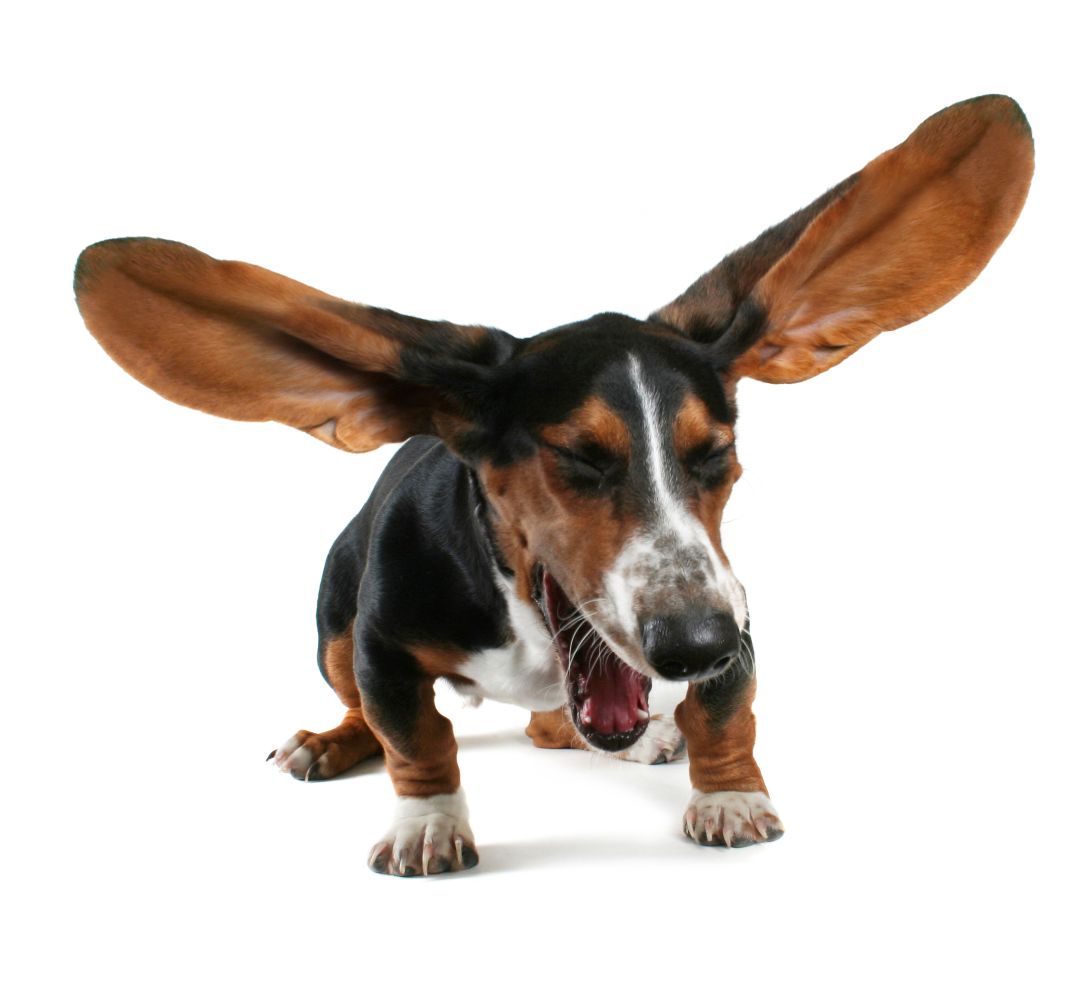What Is A Reverse Sneeze In Dogs?

If you’ve ever heard your dog do a reverse sneeze, you know exactly what it sounds like. Yes, the sound of it is bizarre enough to make a permanent impact. But what is a reverse sneeze, and how does it affect a dog’s health?
What’s Happening
Most pet owners are highly alarmed when their pet begins to reverse sneeze, almost like they’re shocked their pet could even make a sound like it. There’s a reason it’s called a reverse sneeze: it sounds very much like an inhaled version of an actual sneeze. You might hear honking, snorting, wheezing, choking, or coughing sounds as well. It’s easy to jump to the conclusion that a pet is experiencing respiratory distress, but there’s a much simpler explanation behind a reverse sneeze.
Getting Technical
Also referred to as paroxysmal respiration, a reverse sneeze is when an animal inhales and exhales air rapidly. In response to some nasal trigger, the glottis, or the opening to the trachea, responds to a nose or throat spasm and causes explosive-sounding airflow.
We don’t know the exact reason behind the mechanism but the triggers are like those resulting in normal, outward sneezes. We do know that irritations to the back of the throat or nasal passages caused by dust, pollen, smoke, foreign bodies, like foxtails or seeds, infections, and more are directly related to the reverse sneeze.
More Or Less
Brachycephalic breeds, such as pugs, bulldogs, and Boston terriers, may be more prone than others to suffer from this phenomenon. This is due to a tapered trachea and a longer soft palate that causes more resistance to air flowing through the respiratory tract.
Better Safe Than Sorry
Most of the time, the condition will resolve itself in a short time. Owners can try to stroke the throat slowly and soothe the animal to relax their breathing. In severe cases, a veterinarian might prescribe an anti-inflammatory.
When a pet experiences reverse sneezing on a regular basis, it’s a good idea to rule out the possibility of a serious medical condition. Please call us to schedule an appointment. An examination of the throat and nasal passages may clue us into whether your pet needs further supportive care. It may be necessary to take a biopsy, search for foreign material, and assess the structure inside the nose.
Face a Reverse Sneeze
We know that a reverse sneeze can be frightening, but most pets are back to themselves in a matter of minutes. If you need help addressing your pet’s health, behavior, and overall wellness, please call us at (916) 791-8387. Our veterinarians and staff members are always happy to help at Bayside Animal Hospital.


